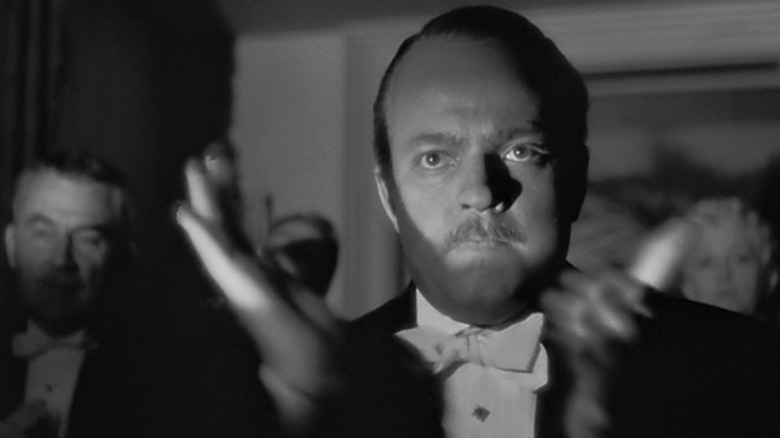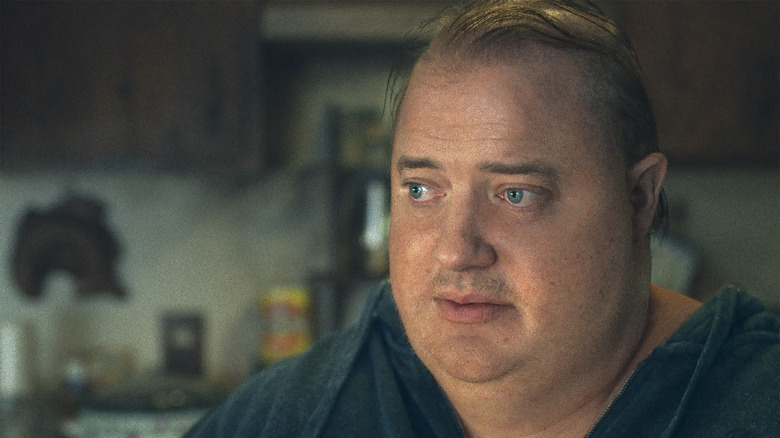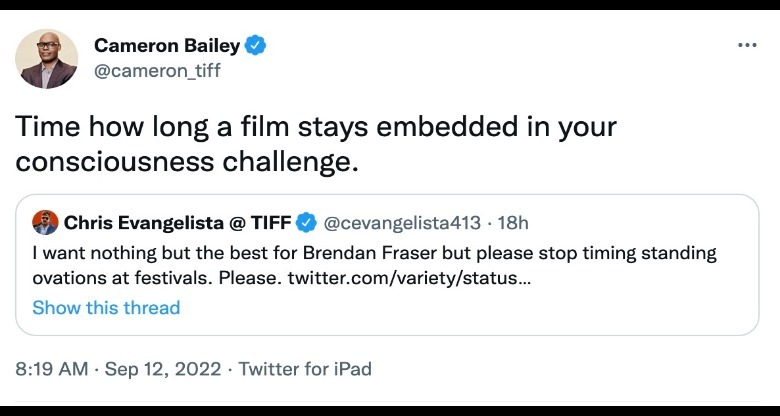For The Love Of God, Please Stop Timing Standing Ovations At Film Festivals
It happens every year. Festival season rolls around, and the standing ovation timing begins. This isn't a new phenomenon, but it seems to be spreading further and wider than ever before, and I'd like it to stop, please. Traditionally, these timed standing ovations seem to be in the domain of the Cannes Film Festival and the Venice Film Festival. When Baz Luhrmann's wonderfully bonkers "Elvis" premiered at Cannes earlier this year, trades were quick to breathlessly report that flick earned a 12-minute standing ovation. The Ana de Armas Marilyn Monroe movie "Blonde" recently earned itself a 14-minute standing ovation at Venice.
These absurdly lengthy ovations are meant to highlight how successful a movie went over with an audience, but sometimes, the standing o's can also be used negatively. For example: when Noah Baumbach's "White Noise" debuted at Venice, Variety practically broke their legs running to report the flick earned a "tepid 150-second standing ovation." Wow, how embarrassing! Everyone who made "White Noise" should be ashamed!
The implications are clear: if a movie gets a lengthy standing ovation it must be great! If the ovation is shorter, well, that's all she wrote, folks! The movie must stink! And now, this strange craze seems to have spread beyond Cannes and Venice. I'm currently at the Toronto International Film Festival, or TIFF as the cool kids call it, and I've begun to see the same kind of stupid, breathless reporting. Steven Spielberg's wonderful "The Fabelmans" drew notice for earning a two-minute ovation, while Brendan Fraser's big comeback "The Whale" topped that with five minutes. But why is anyone reporting this? Who cares?
Why is this happening?
To be clear: I have no problem with standing ovations. Fraser's performance in "The Whale" is genuinely fantastic, and the fact that it signals his long-awaited return to stardom is worth celebrating. But the fact that the trades feel compelled to turn these events into news stories is absolutely perplexing. It also seems part of the gamification of movies — something that drives me utterly insane. Movies are not sporting events. They are not games to be won. But this kind of mindset prevails in the industry, especially in the dreaded world of Oscar blogging. Every year, Oscar bloggers start predicting who will take home Academy gold before they've even seen the films they're talking about.
Why? Because it's something to quantify. It's a numbers game; a bit of bullsh**t meant to devalue the actual consumption of art and turn it into junk food. And now it feels like it's spreading into the world of these abundant standing ovations, and I'm sick of it. Sure, you could argue that the pandemic kept in-person film festivals on the ropes for the last few years, so everyone is just happy to be back in person and they're celebrating by taking to their feet and smacking their hands together. But I don't buy it. On top of that, doesn't this all sound ... strange?
Imagine you come out on a stage and people stand up and start clapping. Obviously, you'd feel great. How could you not? Now imagine the clapping keeps going. And going. And going. Imagine 15 full friggin' minutes of clapping has gone by. Imagine how utterly awkward that might be, as you stand there, an confused smile on your face, completely unsure what to do next.
As is my grouchy nature, I took to Twitter to complain about this event at TIFF.
I want nothing but the best for Brendan Fraser but please stop timing standing ovations at festivals. Please. https://t.co/erndFsU6i5
— Chris Evangelista @ TIFF (@cevangelista413) September 12, 2022
To my delighted surprise, TIFF CEO Cameron Bailey noticed the tweet and weighed in with a comment of his own.
Bailey's concise statement sums it up perfectly. Stop worrying about how long people slam their palms together. Start thinking about the movie itself.


